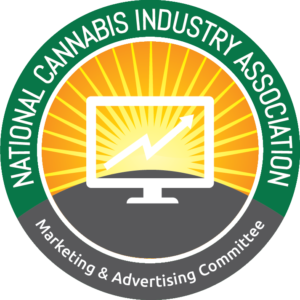Trust In Cannabis – Why It Matters More Now Than Ever
Trust In Cannabis – Why It Matters More Now Than Ever
by Tara Coomans, CEO of Avaans Public Relations
Member of NCIA’s Marketing and Advertising Committee
 This blog originally appeared on the National Cannabis Industry Association
This blog originally appeared on the National Cannabis Industry Association
As a country, the U.S. is experiencing what can best be described as the “age of distrust.” While public distrust in institutions has been escalating for at least a decade, according to the annual Edelman Trust Barometer which has tracked trust in media, governments, businesses, and nonprofits since 2000. Social unrest and a global pandemic have escalated this distrust. Never has the public eyed institutions or businesses with such suspicion.
Meanwhile, in our industry, the vaping crisis of summer 2019 hit our industry below the belt, aided by some bad actors knowingly flooding the illicit market with products that couldn’t meet stringent state testing. That crisis created a crisis of confidence in the overall cannabis industry-leading it into a bleak period which was only partially buoyed by the declaration that dispensaries were considered “essential businesses” during the COVID-19 pandemic, procannabis outcomes in both voting booths and Congress, many thanks to NCIA’s national and local efforts. By supporting NCIA, you’re signaling industry commitment and that you value growing trust within the industry.
Now, against the national backdrop of distrust and a COVID-19 vaccine that offers a glimmer of hope, it’s time to evaluate ourselves and our industry’s actions. Never has it been more crucial for all brands, but particularly our industry, to lean into actions and communications which consistently and powerfully earn the trust of investors and consumers. As an industry, we’re on an important precipice, what we do next will either ensure our credibility or tarnish it for years to come.
Consumers (and therefore investors) are looking at brands in a more holistic manner. Trust will be the single most valuable brand attribute.
Trust is defined on two spectrums: competence and ethics.
For CEOs, CMO’s, and experts in our industry, the time is now to act and communicate from a place of authentically aligned communications. This alignment will require hyper levels of empathy and a constant pulse on the state of affairs affecting your customers. Consumer behavior is in flux now.
The COVID-19 pandemic has changed consumers and now is the time for brands to align. According to the Edelman Barometer special report, Brands Amidst Crisis:
- The role of brands in reflecting the consumer’s desire to be viewed as a tastemaker or trendsetter has decreased 9%
- Up 38% is spending time with family
- 86% of consumers expect brands to solve both societal and personal problems, including proper treatment of employees and making product in a domestic market
- The only values more important than trust to consumers are price and quality
Because consumer behavior is in flux, it’s never been more important to ensure internal and external values and communications align. Ironically, ensuring alignment supports the flexibility needed to respond quickly to changing behaviors or unexpected upheaval.
Aligned communications means we act internally and externally in a consistent and emotionally intelligent manner that earns trust. It’s not just good for our industry, trust in brands has very real bottom-line implications including increased sales, increased investor opportunities, and reduced customer acquisition costs. In fact, according to Edelman Trust Barometer, high trust consumers have 75% more brand loyalty.
Outstanding packaging and even quality products are the minimum expectations for today’s brands. But even those choices come under scrutiny from consumers if they don’t mirror consumer expectations and lifestyle. Therefore, earning trust starts at the very beginning. The earliest choices are powerful signals to consumers about brand values.
It isn’t enough to simply sponsor a campaign or align with a social movement. While those choices can be powerful quivers in your trust arsenal, it feels and sounds hollow when the brand is suddenly thrusting itself into a conversation without looking at itself first. Consumers are increasingly aware of “trust washing.”
92% of employees expect their employer’s CEO to speak up for issues ranging from income inequality to diversity and training for future jobs. An aligned trust-based strategy starts on the inside. Take a solid look at the ethos and ethics within your own company.
What are your company’s values?
What do you stand for?
How do you signal trust internally and how do you reward it?
Does your internal communication stand for your values?
The reason this internal step is critical is no matter what, your brand ethos is distilled into consumer interactions and communication, whether those communications are with dispensary workers or directly to the consumer, the experience will always stay with the brand. Imagine a dispensary worker making recommendations to a new-to-cannabis buyer, naturally, the dispensary worker has a huge amount of influence on the consumer’s impression of a new brand. And new-to-cannabis buyers are most likely to be loyal to their first brand, assuming the product meets expectations.
Personal experience is the number one way to build trust with consumers. 59% of customers say personal experience matters the most.
What consumer interactions signal trust?
How do you manage poor reviews?
How do you handle customer inquiries?
How does your owned media reflect not only your brand values but those of your customers?
Personal experience is absolutely about product experience and brand interactions. Brand interactions at events will take on more importance in cannabis. Consumers will want to engage in an experiential way with cannabis brands and it won’t be at cannabis events exclusively, consumers will expect to see cannabis brands in all the same places they see alcohol brands, even if sales and sampling aren’t available, which means experiences will need to be multi-sensory and strongly personal. Choose your experiences carefully based on your brand audience and ethos.
Earned media is second only to personal experience incredible trust-building. During the COVID-19 pandemic, trust in publications increased by 7%. Brands should look for opportunities in earned media that reflect their values. Branded content is another area where brands can use the credibility of publications.
Experts are still considered credible sources (52%) and they far surpass celebrities (35%) and influencers (36%). As you consider brand strategies in 2021, take a careful look at who you’re leveraging and what role they play. Choose your experts carefully and ensure they are fully vetted. NCIA’s Marketing and Advertising Committee is developing an “experts directory” of carefully vetted industry professionals, this will be a key resource not only to event organizers, but CEOs and CMOs looking for credible, authentic experts.
Our industry has so much to offer consumers, we provide very real opportunities for consumers to enhance their lives. We have been active on numerous social justice fronts from the very beginning. We may come from a historical place of rebellion, but often, even that rebellion came from a place of empathy and not just income. Consumers today are responding to companies who double down on trust and an aligned brand value system. There’s every reason to think the cannabis industry can do this better than anyone. Together, let’s lean into our values and seed trust not just in our companies, but in our industry.
*All statistics come from Edelman Trust Barometer 2020, unless otherwise noted.
This blog appeared originally on the National Cannabis Industry Association Committee Blog













